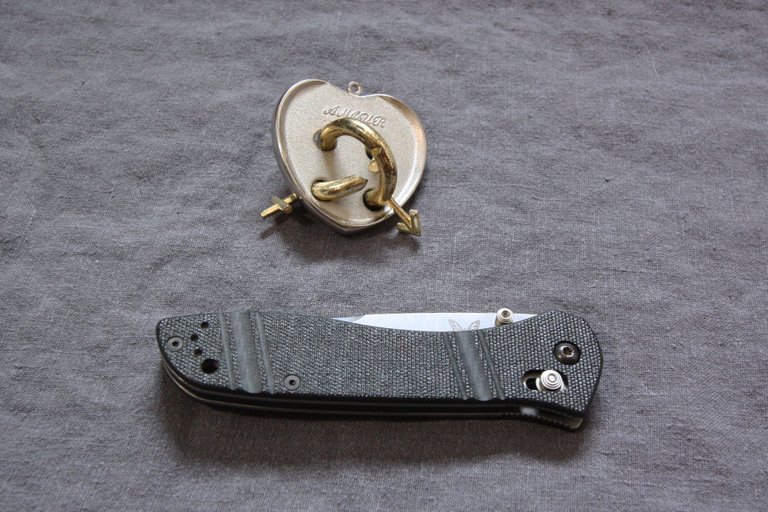
Alright it's back to knives again.
Today we're going to check out my Benchmade 710. This was my very first Benchmade purchase. I didn't want to get anything too weird. The 710 is a pretty standard drop point knife. It has a slightly modified tip. I wanted to get a knife I was pretty sure I was going to like and one that I could afford. It was one of the most affordable Benchmade knives I could find at the time. It also had an interesting blade steel.
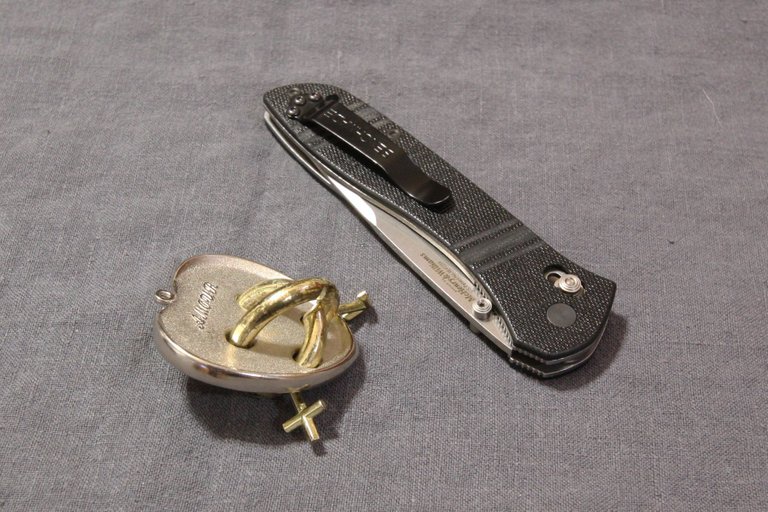
The D2 steel is probably what sold me this knife over a Griptilian. I mentioned in a previous post how I like trying knives with different blade steels.
.jpg)
The final factor in getting this knife was that it was available from a Canadian online retailer. I hadn't found warriors and wonders yet and I didn't want to deal with buying something across the border. I was new to purchasing things online in general really and was still a little nervous about it.
.jpg)
The Benchmade 710 McHenry and Williams is named after the father and stepson knife making team that designed the knife. Bill McHenry and Jason Williams are the designers of the AXIS lock system that Benchmade uses on so many of their knives. Benchmade bought the rights and asked them to design the first knife to have the AXIS lock system. The 710 is the knife they designed. You can read more about the AXIS lock here.
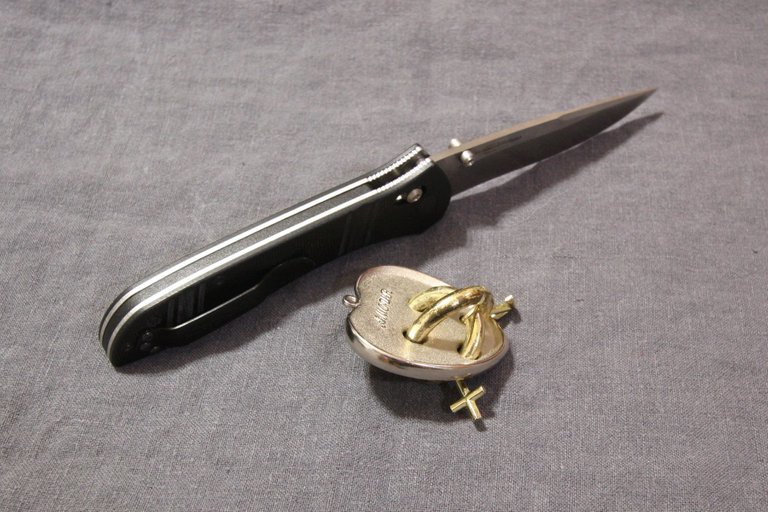
The 710 is a little on the larger side. To the average person it likely looks more like a hunting knife than a pocket knife. It's probably the biggest pocket knife I would carry on any kind of a regular basis. It has a 9.9 cm (3.9 inch) blade and a 22.4 cm (8.8 inch) overall open length. The handle at least is fairly light.
.jpg)
The backspacers are skeletonized to reduce weight.
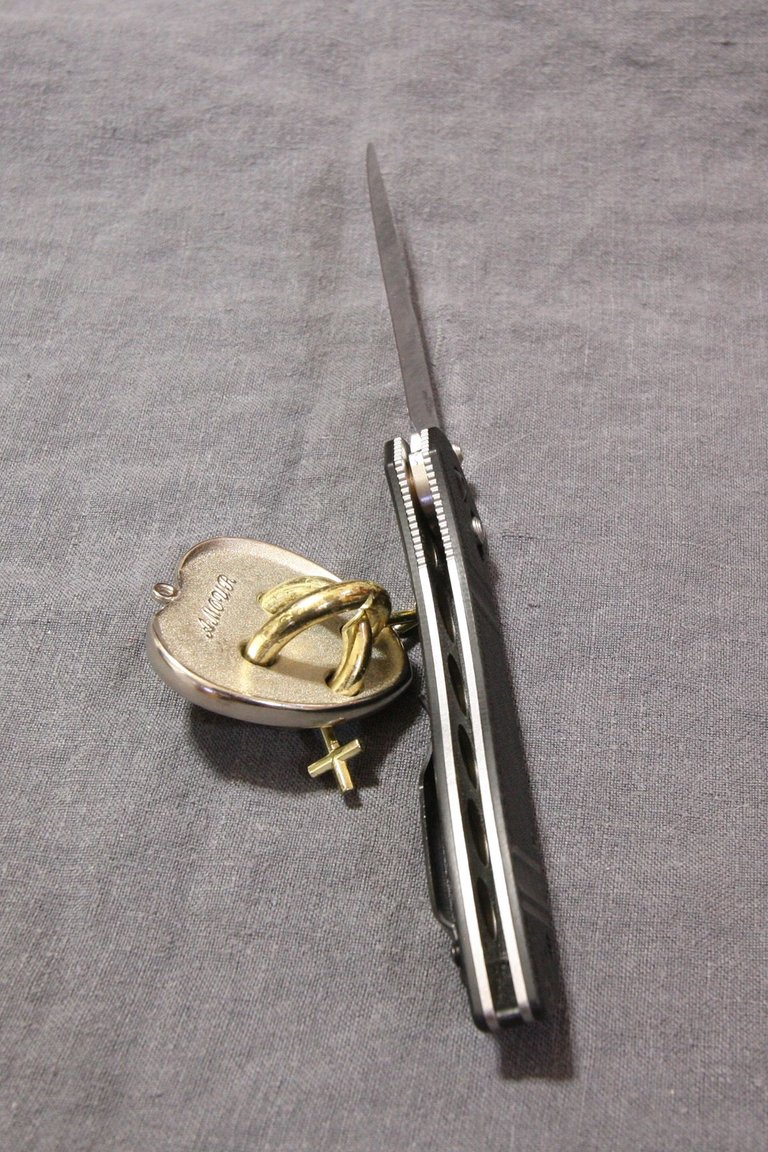
The total weight comes to 128g (4.5 ounces). It has stainless steel liners and black G10 scales and it has a black fibreglass reinforced nylon backspacer. Keeping in mind I was still pretty new to knives, I thought this one looked pretty plain for the price I was paying. I now know that these are quality, lightweight materials being used on an already large knife. I don't have any complaints.
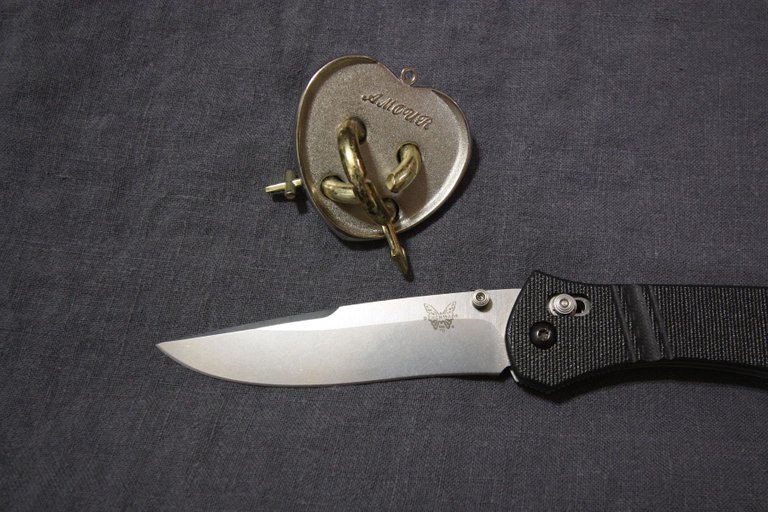
As I mentioned earlier the blade is made from D2 tool steel. D2 is considered a semi-stainless steel. It will corrode but not as easily as a regular carbon steel. The advantage of D2 steel is that it is exceptionally hard and tough. Benchmade heat treats the blade on the 710 to a 60 - 62 on the rockwell hardness scale. Many steels would become extremely brittle at this kind of a hardness and would chip and crack. D2's exceptional toughness allows for a hard heat treat that won't result in chipping and cracking.
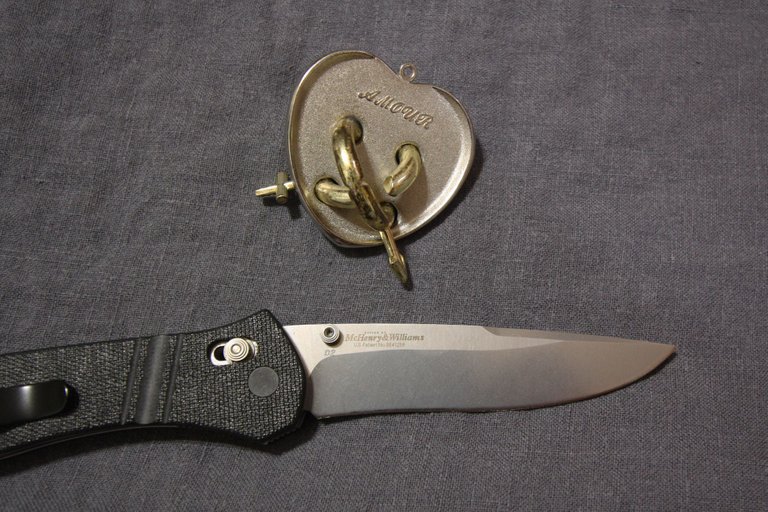
The downside of a blade this hard and tough is that it's difficult to sharpen. The upside is you don't have to sharpen it very often. I actually don't mind sharpening my knives so the downside isn't really much of a downside.
.jpg)
When I first bought this knife the main pivot was tightened so tight that I could hardly get the knife open. I managed to loosen it off a bit but there seemed to be no happy medium between totally free moving with no friction and tight as hell. I thought the knife was damaged. I took it apart and realized it was just over tightened so that it wouldn't be considered a gravity knife. Gravity knives are illegal in Canada. It turns out the action is just that smooth on this knife (like butter).
I like this knife better now that I can appreciate it more. I'm a little more educated about knives and can recognize a quality piece of workmanship. It may just make it back in my pocket again soon.